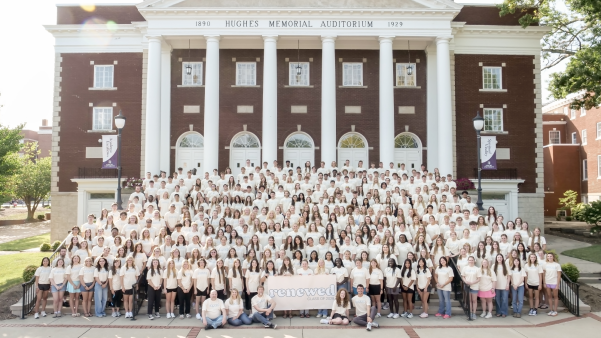Last week we presented the claim by seven number-crunching political scientists that the 2000 presidential election is already over. All of them predicted that Al Gore will be elected in November. But what is really interesting about their claim is not their prediction of the outcome. After all, realistically there are only two choices, Gore or Bush, and at the moment many seasoned political observers, who couldn’t read a “complex mathematical formula” to save their lives, are giving the nod to Gore.No, what is most significant about the claim of these political scientists is their description of what’s really going on, not only in this presidential campaign but in presidential campaigns generally. All the back and forth of the campaign as reported by the media every day is in fact, these political scientists inform us, an elaborate exercise in self-deception, a kind of mass delusion. The outcome of the election has already been determined “before the official campaign gets under way,” Emory University’s Alan Abramowitz explains.Not that these political scientists are against official campaigns and all the hoopla that comes with them: the staking out of positions, the charges and counter-charges, the whole show. No, as Robert Kaiser reports in the Washington Post, “the mathematical forecasters all agree that campaigns matter, but not in the way politicians and political reporters often believe”—nor the way voters themselves believe.For instance, Kaiser writes, James Campbell of the University of Buffalo and Thomas Holbrook of the University of Wisconsin at Milwaukee “argue that the campaign’s real importance is in mobilizing partisans and reminding voters of the issues and of the state of affairs in the country.” So the mass delusion is rather benign, a necessary evil.Does any of this sound familiar? It should. For the last century, under the banner of science, we have been hearing precisely this kind of claim, which purports to go beneath the surface of everyday life to explain what is really going on. So, for example, the twentieth century began with Freud’s “scientific” explanations of the hidden factors shaping family life, such as the suppressed sexual desire of sons for their mothers. And so the century ended with the imperial claims of evolutionary psychology, whereby virtually every aspect of human behavior was explained in terms of the Darwinian struggle to maximize “reproductive suscess,” defined as the replication of one’s genetic material.Religion in particular has come in for this sort of treatment. It too is seen “scientifically” as a mass delusion, malignant or benign or both, depending on the perspective of the observer.And above all the confusion stands the Sovereign Knower, the scientist: Freud stroking his beard, our seven political scientists with their printouts, unlocking the secrets of the political unconscious.If these figures with their pretensions to godlike knowledge strike you as intolerably smug, there is a way, come November, to leave them with egg on their faces. I leave the solution to you.
John Wilson is Editor of Books & Culture and Editor-at-Large for Christianity Today.
Related Elsewhere
Visit Books & Culture online at BooksandCulture.com or subscribe here.The Washington Post‘s August 31 article, ” Academics Say It’s Elementary: Gore Wins,” is available online. Other articles on the American Political Science Association forecasts include:These Are Good Times For Al Gore—columnist James P. Pinkerton, Newsday / San Francisco Chronicle (Sept. 14, 2000) The game is still in early innings—columnist Steve Neal, Chicago Sun-Times (Sept. 8, 2000) And the Winner Is Gore, if They Got the Math Right—The New York Times (Sept. 4, 2000) Political Scientists See Gore Victory Over Bush—Reuters (Aug. 31, 2000) A Presidential Hopeful’s Progress | The spiritual journey of George W. Bush starts in hardscrabble west Texas. Will the White House be his next stop? (Sept. 5, 2000) Bush and Gore Size Up Prolife Running Mates | Will abortion stances play an influential role in Vice Presidential selection? (July 17, 2000) Bush’s Faith-Based Plans | Bush argues that private religious organizations can partner successfully with government. (October 25, 1999) Can I get a Witness? | Candidate testimonies must move beyond piety to policy. (August 9, 1999)Beliefnet, a multifaith Web site, has extensive coverage of religious issues in the campaign. Books & Culture Corner appears Mondays at ChristianityToday.com. Earlier Books & Culture Corners include:Pencils Down, the Election’s Over | According to political scientists, Al Gore has already won. (Sept. 11, 2000) Humans and Other Animals | How much do we share with the birds of the air and the beasts of the field? (Aug. 28, 2000) Cardinal Mahony’s Baloney Sandwich | The public face of Catholic social teaching. (Aug. 21, 2000) In Praise of Miscegenation | Racial categories don’t mean what they used to. Hallelujah. (Aug. 14, 2000) “Give ‘Em Hell, Harry!” | Looking back at the 1948 presidential campaign. By Elizabeth Jacoway (Aug. 7, 2000) Roaring Lambs | The Evangelical Culture of Euphemism, Part 3. (July 31, 2000) The Evangelical Culture of Euphemism, Part 2 | Should we distinguish betweenpublic and private discourse? (July 24, 2000) The Culture of Euphemism | A dispatch from the Christian Booksellers Association convention. (July 17, 2000) Get Outta My Face! | The most troublesome word in religion today. (July 10, 2000)
Copyright © 2000 Christianity Today. Click for reprint information.








